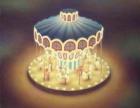冠词的用法专项讲解
With time passing by, they have grown into big boys and girls.
随着时间的流逝,他们都长成大小伙子和大姑娘了。
The shadows lengtheded with the approach of sunset.
随着太阳下落,影子也逐渐伸长。
3,带有(可以作定语,也可以表伴随)
We need a person with a knowledge of European markets.
我们需要一个熟悉欧洲市场的人。
He looked at her with a hurt expression.
他带着受伤的神情看着她。
4.用(表示使用工具或器具)
It is easy to translate with a dictionary.
借助字典进行翻译就会很容易。
You can see it with a microscope.
用显微镜就能看见它了。
5.因为;由于
The small child trembled with fear.
这小孩吓得直打哆嗦。
It is very stuffy in the room, with all the windows closed.
由于窗户都关着,屋子里非常闷。
6.尽管
With all her faults he still loves her.
尽管她有那么多缺点,可他仍然爱着她。
7.用以表示方式、情况、环境或条件
I'll do it with pleasure.
我很高兴做这件事。
She fell asleep with the light on.
她开着灯睡着了。
二、辨析
1.and 和with
两者都有“和”的意思。and是连词,with是介词。当and连接两个主语时,谓语动词一定是复数;而with要看“真正主语”的单复数,也就是with前方的名词。如:
Tom and his mother often _________(go) shopping on weekends.
Tom with his mother often _________(go) shopping on weekends.
and连接两个主语,Tom和妈妈,两个人肯定是复数,所以要用动词原形go; with 要看前方的主语,是Tom一个人,所以要用单数goes
2.as和with
两者都有“因为”“随着”的意思。不管什么意思,两者的核心区别就在于:as要接从句;with只接短语
With our teacher coming, the class become silent.
As our teacher comes, the class become silent.
三、with的固定句式结构
1.with +名词(相当于副词)
with care = carefully
2.with +名词+形容词
with the window open
3.with +名词+副词
with the light on
4.with + 名词+介词短语
with a stick in his hand
5.with +不定式
with a lot of work to do
6.with +名词+现在分词
with the price going up so fast
7.with +名词+过去分词
with her bike stolen
一分钟区别Wish 和 Hope的用法
Hi, guys! Dan for BBC Learning English here. Today, we're going to talk about the verbs wish and hope.
大家好!这里是BBC英语学习频道,我是丹。今天我们来学一学wish和hope这两个动词。
Now, the verb wish can be used in many ways - and you can get much more detailed information on our website.
wish的用法有很多——大家可以在我们的网站上了解到更多详细信息。
However, we generally use wish to talk about a present or past situation that we want to change, but understand that it can't.
然而,我们通常用wish 来表示想要改变却又知道无法改变的当下或过去发生的事情。
Present wishes are wish + a past simple verb.
表示当下的愿望时可以用wish+动词的一般过去式 。
For example:
例如:
I wish I were taller.
真希望我的身高能再高一点。
Past wishes are wish + past perfect.
表示对过去的愿望用wish+动词的过去完成式。
I wish I had grown taller.
真希望我以前能长高一点。
Hope can also be used in different ways. But generally, when we hope, we talk about something that we want or expect for the future.
hope 的用法也很多,但我们通常将它用于表示对未来的一种期望。
Hope can be followed by a full infinitive.
hope后面可以加带to不定式。
For example:
例如:
I hope to see you soon.
希望很快能见到你。
But more commonly we follow it with a present tense that has a future meaning, or with will.
但更多的用法是在hope后面跟随动词的一般现在时或者will,表示将来的状态。

 实用的生活知识参考!
实用的生活知识参考!





